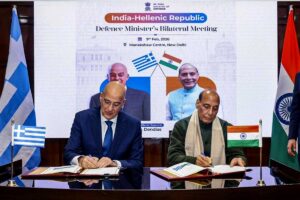By a majority vote, the U.N. passed to give Palestine new power thereby endorsing a resolution aiming to grant new “rights and privileges” to a Palestinian state and urged the Security Council to reconsider their admission as the 194th member of the U.N. However, the vote does not assure membership.
Out of the 177 countries present, 143 supported the resolution, nine opposed it, and 25 abstained. Those in favor included Algeria, Andorra, Angola, Antigua-Barbuda, Armenia, Australia, Azerbaijan, Bahamas, Bahrain, Bangladesh, Barbados, Belarus, Belgium, Belize, Benin, Bhutan, Bolivia, Bosnia and Herzegovina, Botswana, Brazil, Brunei, Burkina Faso, Burundi, Cabo Verde, Cambodia, Central African Republic, Chad, Chile, China, Colombia, Comoros, Costa Rica, Côte d’Ivoire, Cuba, Cyprus, Democratic People’s Republic of Korea, Denmark, Djibouti, Dominica, Dominican Republic, Egypt, El Salvador, Equatorial Guinea, Eritrea, Estonia, Ethiopia, France, Gabon, Gambia, Ghana, Greece, Grenada, Guatemala, Guinea, Guinea-Bissau, Guyana, Haiti, Honduras, Iceland, India, Indonesia, Iran, Iraq, Ireland, Jamaica, Japan, Jordan, Kazakhstan, Kenya, Kuwait, Kyrgyzstan, Laos, Lebanon, Lesotho, Libya, Liechtenstein, Luxembourg, Madagascar, Malaysia, Maldives, Mali, Malta, Mauritania, Mauritius, Mexico, Mongolia, Montenegro, Morocco, Mozambique, Myanmar, Namibia, Nepal, New Zealand, Nicaragua, Niger, Nigeria, Norway, Oman, Pakistan, Panama, Peru, Philippines, Poland, Portugal, Qatar, Republic of Korea, Russia, Rwanda, Saint Kitts and Nevis, Saint Lucia, Saint Vincent and the Grenadines, San Marino, Saudi Arabia, Senegal, Serbia, Seychelles, Sierra Leone, Singapore, Slovakia, Slovenia, Somalia, South Africa, Spain, Sri Lanka, Sudan, Suriname, Syria, Tajikistan, Thailand, Timor-Leste, Trinidad and Tobago, Tunisia, Turkmenistan, Turkey, Uganda, United Arab Emirates, United Republic of Tanzania, Uruguay, Uzbekistan, Vietnam, Yemen, Zambia, and Zimbabwe.
Those against included Argentina, the Czech Republic, Hungary, Israel, Micronesia, the United States, Papa New Guinea, Nauru, and Palau.
25 countries chose not to vote, including Albania, Austria, Bulgaria, Canada, Croatia, Fiji, Finland, Georgia, Germany, Italy, Latvia, Lithuania, Malawi, Marshall Islands, Monaco, Netherlands, North Macedonia, Paraguay, Republic of Moldova, Romania, Sweden, Switzerland, Ukraine, United Kingdom, and Vanuatu. This decision followed impassioned speeches.
During the session, Palestinian Ambassador Riyad Mansour urged member states to support the resolution, stating, “Voting yes is a vote for Palestinian existence, not against any state.” Conversely, Israeli U.N. delegate Gilad Erdan dramatically tore up a copy of the U.N. Charter on stage, asserting that including a Palestinian state would contravene the charter.
Per U.N. protocol, the Security Council must recommend a member for final approval by the General Assembly with a two-thirds majority vote. Unlike the Security Council, General Assembly members lack veto power. With over 140 U.N. member states recognizing a Palestinian state, including the West Bank and Gaza Strip, the resolution was anticipated to pass decisively. Palestinian ambassadors, functioning as U.N. nonmember observer states since 2012, have long advocated for full U.N. membership, a push amplified by the recent Gaza conflict and ensuing humanitarian crisis. The U.N. Charter stipulates that membership is open to “all peace-loving States that accept the obligations…and can carry out these obligations.”
In April, the United States, a permanent member of the 15-seat Security Council, vetoed a resolution supported by the majority, advocating for Palestine’s membership. As a permanent member, the U.S. holds veto power over resolutions. Ambassador Robert Wood, in response to the U.S.’s April veto, raised doubts regarding the applicant’s eligibility for membership, particularly whether they qualify as a state. Wood reiterated the U.S.’s stance before the recent vote, emphasizing that “the most expeditious path toward statehood for the Palestinian people is through direct negotiations with Israel,” according to The Associated Press.












